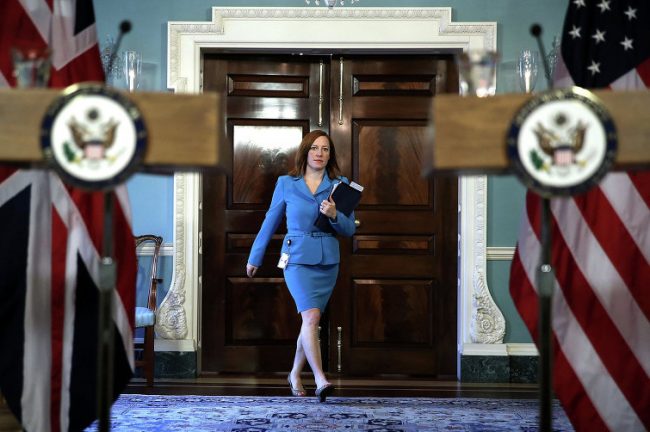
The U.S. authorities are troubled by reports of ceasefire violations in recent days in Nagorno-Karabakh, spokesperson for the US State Department Jen Psaki said Monday at a daily press-briefing, according to the U.S. Department of State website.
“We are troubled by reports of ceasefire violations, as well as casualties in recent days. These incidents do not correspond to the Armenian and Azerbaijani presidents’ commitments to reach a peaceful resolution to the Nagorno-Karabakh conflict,” Psaki said.
“As an OSCE Minsk Group co-chair country, we do continue to urge both sides at the highest levels to engage in negotiations that could lead to a peace agreement and adopt measures to reduce the likelihood of such events along the line of contact and along the border. That continues to be our focus,” Psaki added.
Earlier, the US co-chair of OSCE Minsk Group James Warlick wrote on Twitter about his expectations from 2015 in terms of settlement of Armenian-Azerbaijani Nagorno-Karabakh conflict. “2015 should be a year for Nagorno-Karabakh peace and a lasting settlement,” Warlick tweeted. “Renewed violence is not the answer.”
The Armenian armed forces fired on the positions of the Azerbaijani armed forces and frontline settlements by using large-caliber weapons, anti-tank grenade launchers and 60- and 82-millimeter mortars on January 3.
The Azerbaijani foreign ministry issued a statement. The continued occupation of Azerbaijani territories and the presence of the Armenian armed forces on these lands can only lead to negative consequences, the statement says.
“Without withdrawing the occupation forces, Armenia aggravates the situation and encourages instability and human losses in the region,” the statement says. “As an occupier and aggressor, Armenia has full responsibility for these actions.”
The conflict between the two South Caucasus countries began in 1988 when Armenia made territorial claims against Azerbaijan.
As a result of the ensuing war, in 1992 Armenian armed forces occupied 20 percent of Azerbaijan, including the Nagorno-Karabakh region and seven surrounding districts.
The two countries signed a ceasefire agreement in 1994. The co-chairs of the OSCE Minsk Group, Russia, France and the US are currently holding peace negotiations.
Armenia has not yet implemented four UN Security Council resolutions on the liberation of the Nagorno-Karabakh and the surrounding regions.
Trend:
